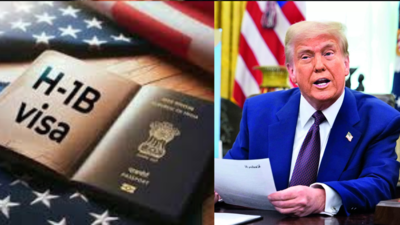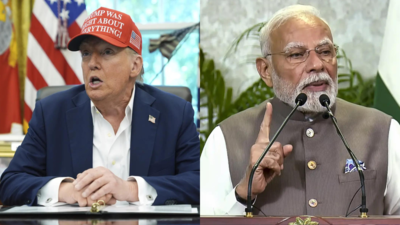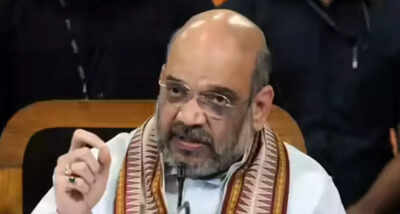‘We’re going to change the green card’: Trump team plots H-1B shake-up — what it means for Indians

The Trump administration is planning a major overhaul of the United States’ H-1B visa and green card systems, signalling a shift towards wage-based immigration and merit-driven selection. US commerce secretary Howard Lutnick on Monday said he is involved in the proposed reforms, which aim to replace the current lottery-based system with a more selective model.
“We’re going to change the Green Card. We give green cards – the average American makes $75,000 a year and the average green card recipient $66,000 a year,” Lutnick said in an interview with Fox News, questioning, “Why are we doing that? It’s like picking the bottom core.” He added, “That’s why Donald Trump is going to change it – that’s where the Gold Card is coming, and with that we’re going to start picking the best people, and it’s time for that.”In a post on X, Lutnick called the current H-1B system “a scam that lets foreign workers fill American job opportunities” and said “hiring American workers should be the priority of all great American businesses.”The proposed changes are expected to include eliminating the H-1B lottery system and introducing a wage-based allocation, where visas are given to higher-earning applicants first. A draft rule to this effect was approved by the US office of information and regulatory affairs earlier this month.The “Gold Card” initiative, still in early stages, is positioned as an alternative to the current green card process, with a focus on attracting high-skilled, high-earning individuals. While details remain under discussion, the shift aligns with Trump’s broader “America First” immigration approach.The move has drawn attention from Indian professionals, who form the majority of H-1B recipients. According to US immigration data, Indian nationals have consistently accounted for over 70% of new H-1B allocations annually.The proposed changes around suspending or ending the H-1B visa programme have also sparked online debate, with several users on social media arguing that such a move could backfire. Critics point out that restricting access to skilled foreign talent may lead to jobs shifting to countries like India through remote hiring or outsourcing, rather than resulting in American workers filling those roles.




